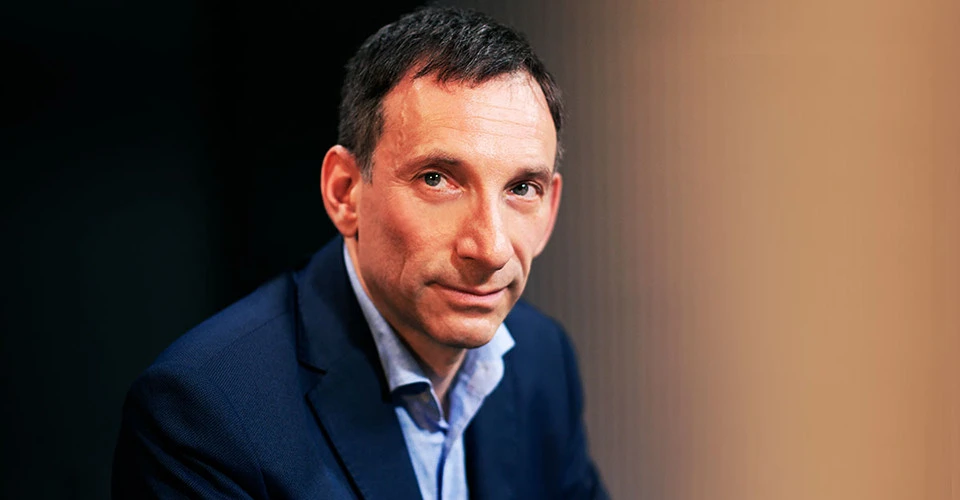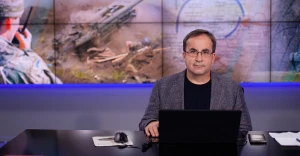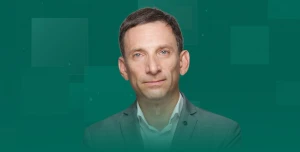
Shoigu unexpectedly mentions negotiations – journalist Portnikov
During his speech at the 10th Xiangshan Forum in Beijing, Russian Minister of Defense Sergei Shoigu made a significant announcement. This marks the first time in many months that a high-ranking Russian official has expressed willingness to engage in negotiations during the ongoing Russian-Ukrainian war
Shoigu stated that Russia is prepared for political discussions concerning the resolution of the Ukrainian crisis and future relations with Western nations. He made this declaration while addressing the forum and meeting with senior Chinese leaders during his visit to Beijing.
Shoigu stressed that Russia's readiness for political discussions hinges on the establishment of necessary conditions. These discussions should encompass not only the post-conflict resolution of the Ukrainian crisis but also the framework for continued coexistence with Western countries. He emphasized the importance of promoting equal relations among all nuclear states and permanent members of the UN Security Council, who bear a significant responsibility for global peace and stability. Furthermore, Shoigu asserted the necessity of constructing a just global order, which, in turn, requires the restoration and reinforcement of international security structures. He called for collective efforts from all interested nations to achieve this goal.
This marks the first call for negotiations from a Russian political and military leader in many months, throughout the entire Russian-Ukrainian war. This appeal doesn't just state that Russia is ready to negotiate with Ukraine based on the terms proposed by Vladimir Putin and other Russian leaders. It's also an invitation to improve relations with the West, effectively recognizing that security can only be achieved when both Western countries and Russia settle their differences.
Why did Shoigu make this statement?
First, let's consider where he made it. It was in Beijing, following talks between the Russian Defense Minister and Zhang Youxia, the Vice Chairman of the Central Military Commission. It's important to note that the head of this Central Military Commission is Xi Jinping, China's leader and General Secretary of the Communist Party. Currently, preparations are underway for the head of China's visit to the United States for a summit with President Joe Biden in San Francisco. It's likely that the Chinese leader wants to discuss global security parameters with the US president. To make it clear that Russia supports peaceful resolutions and open dialogue with the civilized world, the Russian leadership needs to make these peaceful appeals and proposals. This way, the Chinese President can convey to the U.S. that the Kremlin might be open to potential improvements in international relations, possibly involving a ceasefire or even resolution in the Russian-Ukrainian war.
Sergei Shoigu's second motive in these statements may be related to Russia's realization that conquering Ukraine and integrating it into the Russian Federation or its sphere of influence is highly unlikely in the current geopolitical landscape. Even if we assume that Vladimir Putin still considers this goal important, it would take significant time to gather new resources, secure new allies, acquire additional equipment, and assemble the necessary military personnel for extensive operations not only in Ukraine but also in other former Soviet republics.
After 20 months of war with Ukraine, it has become evident that the Russian Federation lacks the capacity for this. Even if Moscow anticipates further successes for Russian forces in occupying additional Ukrainian territory, this may not align with Vladimir Putin's ambitions and schizophrenic megalomania. Given these circumstances, it appears imperative to halt the war. However, to achieve this, negotiations with the West, rather than Ukraine, are necessary. The West holds the key to providing the Russian Federation with assurances of a neighboring state's neutral status, which could open the door to potential future military actions in Ukraine or exerting pressure on Ukraine.
Although it seems unlikely that Western politicians would entertain such negotiations, considering the severe actions Russia has taken against Ukraine, the Russian Minister of Defense's task is to gauge the civilized world's response to these proposed negotiation options.
The third important point connected to the Russian Minister of Defense's words reflects internal conflicts within Russia's political and military leadership. There has always been a so-called “party of hawks” advocating for continuous warfare, regardless of the economic strain on Russia and the toll on Russian soldiers tasked with dismantling Ukrainian statehood. On the other hand, there's a group of realists who believe in pursuing war only as long as there are clear opportunities to achieve Vladimir Putin's goals swiftly. Otherwise, they suggest pausing the military campaign and focusing on destabilizing Ukraine and other former Soviet republics through economic pressure and preparing for potential future military actions. The Russian “hawks” and “peacekeepers”, as they might be termed, differ in their approaches.
It's also evident that Russia seeks to appear as a peace-seeking nation, particularly during international conferences, even if these intentions aren't substantiated by realistic actions or institutional solutions. This might explain why the Russian Minister of Defense made such a statement at the Beijing Forum. However, it's worth noting that it's been a while since a high-ranking Russian official has expressed such wishes, indicating a shift in how Kremlin leaders perceive the unfolding events.
About the author. Vitaly Portnikov, journalist, Shevchenko National Prize laureate
The editors do not always share the opinions expressed by the blog authors.
- News














































